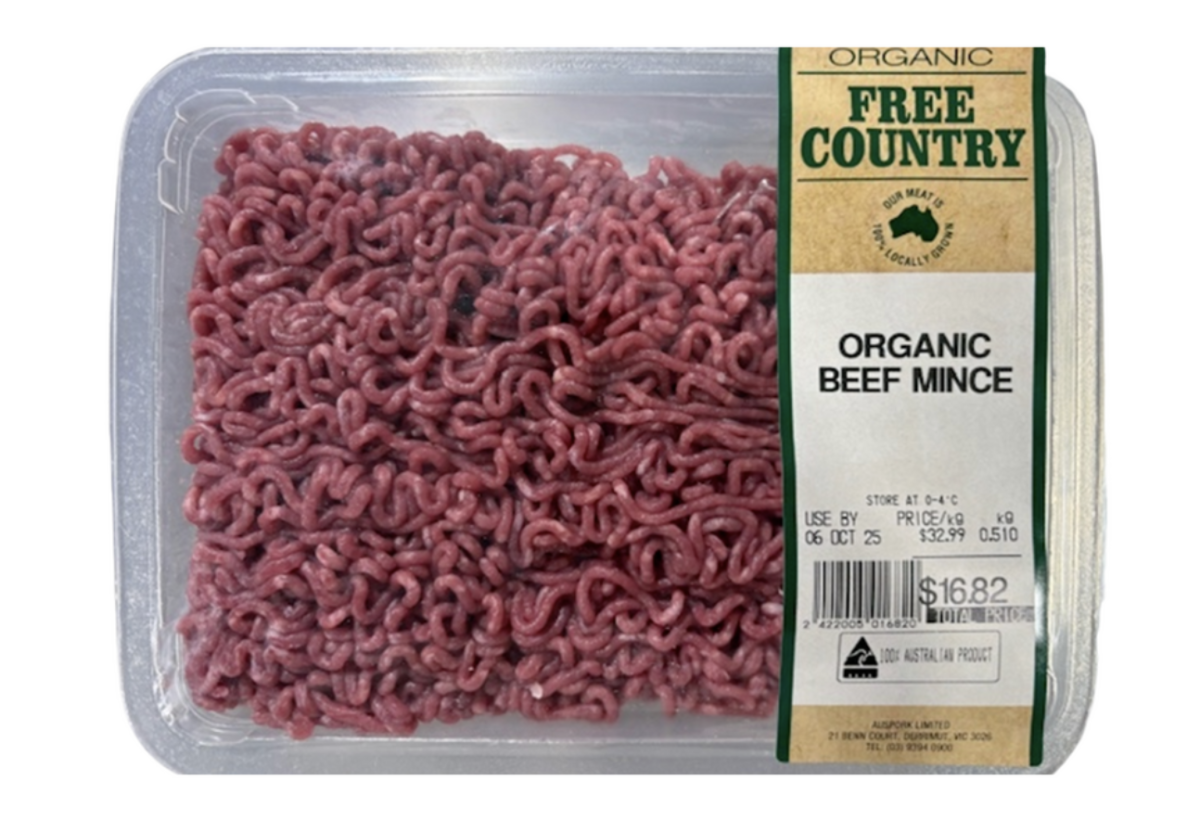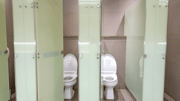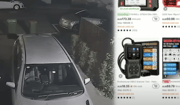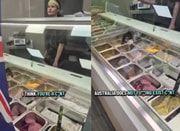
Shoppers across multiple states are being urged to check their fridges after a popular beef mince product was pulled from shelves due to contamination fears.
Food Standards Australia New Zealand (FSANZ) has issued an urgent recall for Free Country Organic Beef Mince 500g, produced by Auspork Australia Pty Ltd, after plastic was discovered inside packs.
The beef mince recall
The affected mince carries a best before date of September 28 and has been sold through IGA stores in NSW, QLD, VIC, TAS, SA and NT, as well as Supabarn outlets in the ACT.
'Consumers should not eat this product,' FSANZ said in its recall notice. 'Return the products to the place of purchase for a full refund.'
The regulator has warned that ingesting plastic fragments could pose a risk of illness or injury. Concerned consumers are advised to seek medical attention.
Free Country Organic Beef Mince recall details
Product: Free Country Organic Beef Mince 500g
Brand: Auspork Australia Pty Ltd
Best Before: 28 September 2025
Retailers: IGA (NSW, QLD, VIC, TAS, SA, NT), Supabarn (ACT)
Action: Do not consume. Return to store for full refund.
A week of supermarket recalls
The beef recall is just the latest in a string of food safety alerts from FSANZ in recent days.
Two snack products—Smooshed Wholefood and Protein Balls and Made Real Wholefood Balls—were recalled earlier in the week after metal fragments were detected in multiple batches. The Made Real products, sold in ALDI stores nationwide, include both 69g and 184g packs in Cashew, Cocoa & Berry and Peanut Butter & Caramel flavours with date markings up to 23 September 2026.
Meanwhile, Smooshed Wholefood Balls, available at Coles and Woolworths, have been recalled across several flavours and pack sizes, with date markings ranging through mid-2026.
Another FSANZ alert also targeted frozen dumplings. A batch of Urban Eats Japanese Style Vegetable Gyoza 750g, sold at Aldi, was found to contain glass, with best-before dates ranging from 10 April 2027 to 15 June 2027.
In WA, Fine Food WA’s Crunchy Brown Rice Salad, sold at Woolworths, was pulled from shelves after being linked to Listeria contamination. The affected tubs carried a use-by date of 22 September 2025.
Did you know?
Did you know?
- FSANZ coordinates national food recalls in Australia, but enforcement is carried out by state and territory health departments.
- Around 80–100 food recalls happen every year, most commonly due to undeclared allergens, microbial contamination, or foreign objects like metal, plastic, or glass.
- While most recalls are precautionary, ignoring them can carry serious health risks, particularly for children, pregnant women, and people with weakened immune systems.
What consumers should do
If you have purchased any of the recalled products, stop using them immediately and return them to the store for a full refund. Retailers are required to honour the recall, and no receipt is necessary.
Anyone experiencing health concerns after consuming these items should contact their doctor. FSANZ and Sydney Water both stress that food safety remains a priority and that recalls are an important safeguard for consumers.
Read more: Double trouble: Popular frozen and packaged foods recalled for contamination risks
What This Means For You
With multiple recalls in the space of a week, experts say it’s a timely reminder for Australians to stay alert to FSANZ updates. Keeping an eye on recall notices can help protect your family’s health and ensure contaminated products don’t stay in circulation.
Have you ever found a recalled product in your pantry or fridge? Share your experience in the comments below—your story might help others catch a dangerous item before it’s too late.







